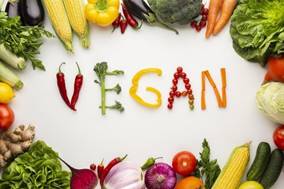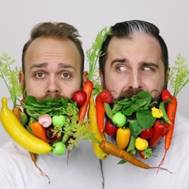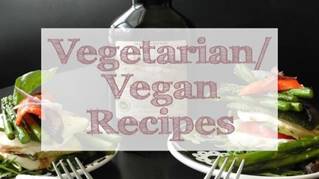
 Vegetarianism
Vegetarianism
While a meatless diet is growing more and more popular, particularly with the young researchers discover the health benefits of meat-free eating.
What is a vegetarian?
By definition, vegetarianism prohibits the consumption of meat or fish, but some diets are more restrictive than other.
Demi- or semi-vegetarians eat fish and sometimes chicken, but not red meat.
Ovo-lacto-vegetarians include milk and eggs in their diet but not meat or fish.
Lacto-vegetarians have milk and yogurt, as well as cheese made with vegetarian rennet, but no meat, fish or eggs.
Vegans do not eat any animal products at all, banning meat, fish, milk and eggs from their diets.
Fruitarians exclude pulses and cereals from the diet as well as all foods of animal origin.
Fruitarians eat only fruit, honey, nuts and nut oils. Рз • Macrobiotic followers have a diet consisting of ten different levels, which become progressively more restrictive At first, animal foods are excluded, then fruit and vegetables as well. At the final “purist” level only brown rice is eaten.
 The
Health Benefits
The
Health Benefits
On the whole, vegetarians follow current healthy eating guidelines.
Because they don’t eat meat, a prime source of saturated fat, Vegetarians take in less total fat, as well as more fibre, in the form of fresh fruits, vegetables and wholegrain cereals. These foods are also good sources of beta carotene, vitamin C and vitamin E, which are antioxidant nutrients and may protect the body from disease. A research team at Oxford University has collected information on the health and mortality of more than 6,000 vegetarians and a control group of more than 5,000 meat-eating individuals. The study revealed significant differences between the two groups. For example, in contrast to meat-eaterspvegetarians have a 39 percent lower risk of dying from cancer. The study’s research team also found that the risk of heart disease was 24 per cent lower in vegetarians and 57 per cent lower in vegans than in regular meat-eaters.
Give Russian equivalents:
a meatless diet, health benefits, meat-free eating, by definition, consumption of meat or fish, ovo-lacto-vegetarians, lacto-vegetarians, exclude pulses and cereals, healthy eating guidelines, wholegrain cereals, good sources of beta carotene, antioxidant nutrients, the risk of heart disease, regular meat-eaters.
Translate the sentences into English
1. Диета, исключающая мясо, становится все более популярной, особенно среди молодежи.
2. Ученые-исследователи обнаруживают преимущества диеты, исключающей Мясо.
3. Вегетарианство исключает употребление мяса в пищу.
4. Полувегетарианцы иногда едят курицу.
5. Приверженцы строгой вегетарианской диеты вообще не едят продукты животного происхождения.
6. Приверженцы макробиотики придерживаются диеты, состоящей из десяти уровней.
7. На последнем, «чистом» уровне они едят только коричневый рис.
8. В целом вегетарианцы придерживаются правил здорового питания.
9. Они употребляют в пищу меньше жира и больше клетчатки. 10. Вегетарианцы подвержены на 39 % меньшему риску умереть от рака.
Answer the following questions:
1. What is a vegetarian?
2. What can semi-vegetarians eat?
3. What do ovo-lacto-vegetarians include in their diet?
4. What do lacto-vegetarians exclude from their diet?
5. What can vegans eat?
6. What do fruitarians eat?
7. What is the macrobiotic diet?
8. What foods are rich of beta carotene, vitamin C and vitamin E?
9. What has the research team from Oxford University revealed?
10. Are you a vegetarian or a meat-eater?
11. Are there vegetarians in your family?
12. Is it difficult to cook dishes for a vegetarian?
 Your
friend is a vegan. Give the recipe of some tasty dishes for him/her:
Your
friend is a vegan. Give the recipe of some tasty dishes for him/her:
Материалы на данной страницы взяты из открытых источников либо размещены пользователем в соответствии с договором-офертой сайта. Вы можете сообщить о нарушении.